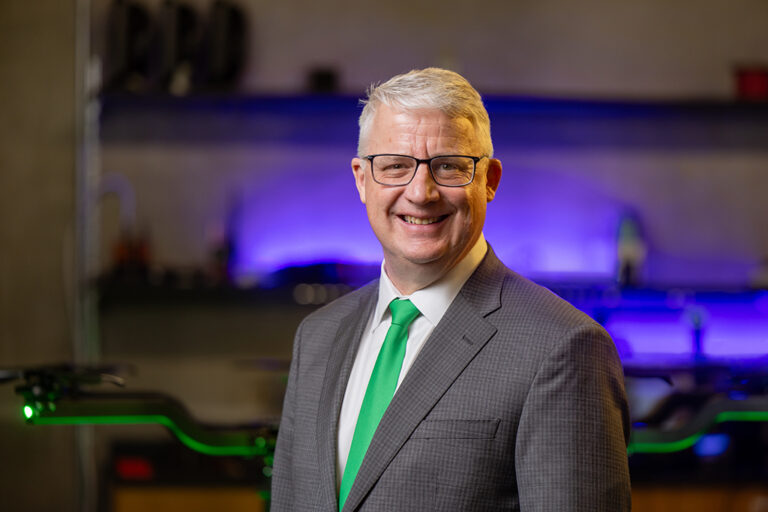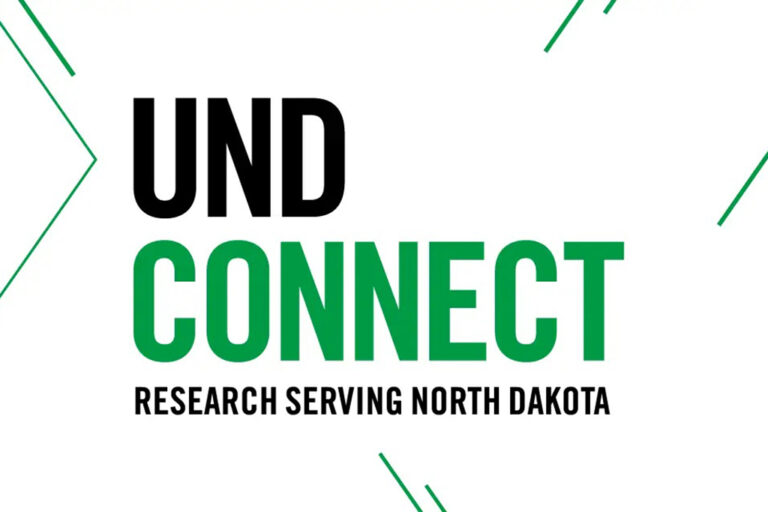Lock on leaks
UND petroleum engineer develops novel methods to detect pipeline leaks before they wreak economic, environmental havoc

Leakage is a major challenge in any technology that moves fluids from one place to another.
Think garden hose: how much water leaks along the path from faucet to nozzle? Unless it’s all brand new and fits perfectly, you’re just about guaranteed to lose water along the way.
Now think big hose – as in a coated carbon steel pipe upward of one inch thick and five feet in diameter and maybe hundreds of miles from well to refinery. Any leak in this vital system is economically and environmentally consequential.
So noted Kegang Ling, petroleum engineering professor and an expert in pipeline leak detection in the UND Department of Petroleum Engineering, part of the College of Engineering & Mines. Ling has been researching more cost-effective and more efficient algorithms that detect and precisely quantify leaks earlier than existing technologies.
“First, let’s point out that pipelines are the surest, best, safest, and cleanest way to move oil and natural gas,” said Ling, who’s been studying leakage challenges for more than a decade. He knows the problems firsthand—after graduating with his petroleum geology degree in the People’s Republic of China, he worked on Chinese offshore drilling rigs. He obtained his PhD in petroleum engineering at Texas A&M.
Simpler, more practical
But let’s not downplay the risks: pipelines, key to the national economy, are a lot more than the big “garden hoses” in the petroleum industry. The Argonne National Laboratory, a federal Department of Energy facility in Lemont, Illinois, notes that the U.S. pipeline industry is large and diverse, comprising more than 2 million miles of pipes in all 50 states, daily ferrying millions of barrels of liquid petroleum and refined products, natural gas, and other fluids.
Thus, Ling is part of an elite global group of engineers and scientists looking at ways to mitigate leaks in this vast system.
“My research looks at how to detect a leakage after it occurs, and I use data to detect a leakage by drops in pressure and other parameters such as temperature,” said Ling, who’s served as associate editor for the Journal of Unconventional Oil and Gas Resources and has published, often as part of a multi-institution research team, several key and often-quoted papers about pipeline leaks. “I provide methods of detecting leaks to energy and pipeline companies.”
In his Petroleum Engineering lab at UND, Ling and his team built a model pipeline system with sensors placed all along to detect the minute changes in pressure, temperature, and volume that signal a leak. His algorithms showcase a novel way to specifically pinpoint and quantify a leak so that a pipeline operator can immediately tell exactly how big the leak is – this facilitates timely and accurate response to the leakage situation.
“What this is all about is trying to find the most effective method of leak detection, and continually refine this detection process,” said Ling.
In addition to his leak detection R&D work, Ling’s research interests include reservoir engineering, natural gas engineering, reserve evaluation, production optimization, flow assurance.
“What we’re looking for is simpler and more practical leak detection,” he said. “Detecting, locating, and precisely quantifying leaks is one of the energy industry’s critical needs.”
 About the author
About the author
Juan Miguel Pedraza is co-founder of STEMflash Media, which contracts with the UND Division of Research & Economic Development. With a multicultural background and fluency in six languages, Pedraza brings extensive experience in print and broadcast journalism; technical editing; and both public sector and private sector public relations, to his consultancy work with UND. Born in Spain and having spent part of his childhood in places such as Brazil, Pedraza received his bachelor’s degree in international studies from UND in 2008.


